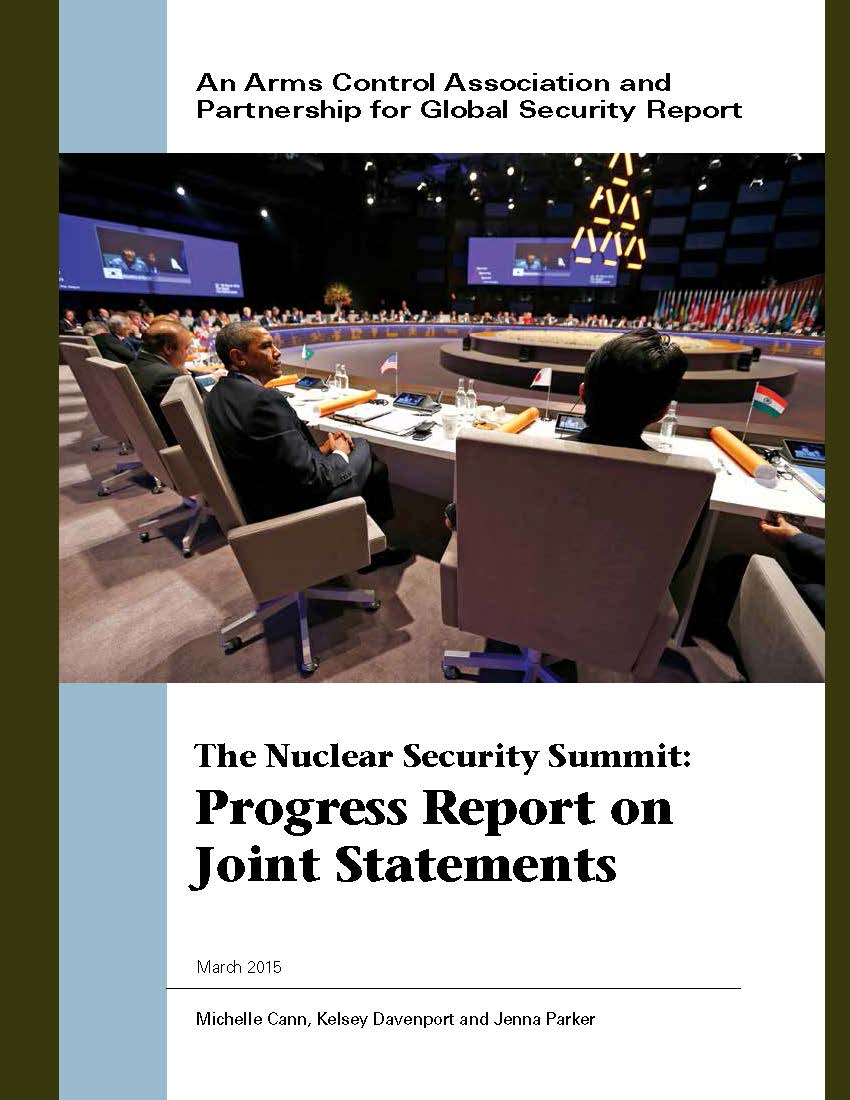March 2015
A year out from the final Nuclear Security Summit, a report from the Arms Control Association (ACA) and the Partnership for Global Security (PGS) concludes that multilateral collaborative efforts targeting key areas are improving global nuclear material security. However, narrowly focused commitments at the 2016 Nuclear Security Summit (NSS) will only result in incremental improvements, not a sufficiently cohesive global nuclear security system and lasting legacy for the summit process.
The report assesses progress made on more than a dozen joint statements issued at the 2014 NSS in The Hague and the value of continuing voluntary nuclear security commitment making at the 2016 summit and beyond. It is the fifth in a series published by ACA and PGS tracking the impacts of voluntary commitment making at the NSS process. NSS joint statements – also known as gift baskets – allow like-minded states to collaborate on advancing nuclear security in areas they deem to be of mutual concern. Of the 53 participating states at the 2014 summit, 46 signed onto at least one statement.
The 31-page report describes actions taken on 15 joint statements – six that target new areas and nine that originated at the 2012 summit. Eight of the nine were updated and expanded upon at the 2014 summit. Notable achievements include:
- Signatories of the Strengthening the Nuclear Security Implementation initiative committed to integrate International Atomic Energy Agency (IAEA) Nuclear Security Fundamentals and relevant recommendations into national rules and regulations and host peer reviews to ensure effective implementation and ensure demonstrable competence of personnel. This gift basket will outlive the summit process as an IAEA document available for signature by all member states.
- An array of national, bilateral, and multilateral actions have been taken to Counter Nuclear Smuggling, including a workshop for all statement signatories hosted by Jordan in early 2014.
- The United States is hosting a Maritime Security workshop in late 2015 focused on permanently removing radioactive materials that are outside of regulatory control.
- Twelve countries have become HEU-Free since the summit process began, and several others have secured or removed some HEU from their territories.
- More than a dozen countries have requested reviews of their national laws on nuclear security to identify any gaps as compared with the National Legislation Implementation Kit.

